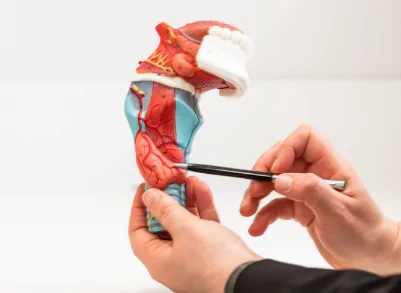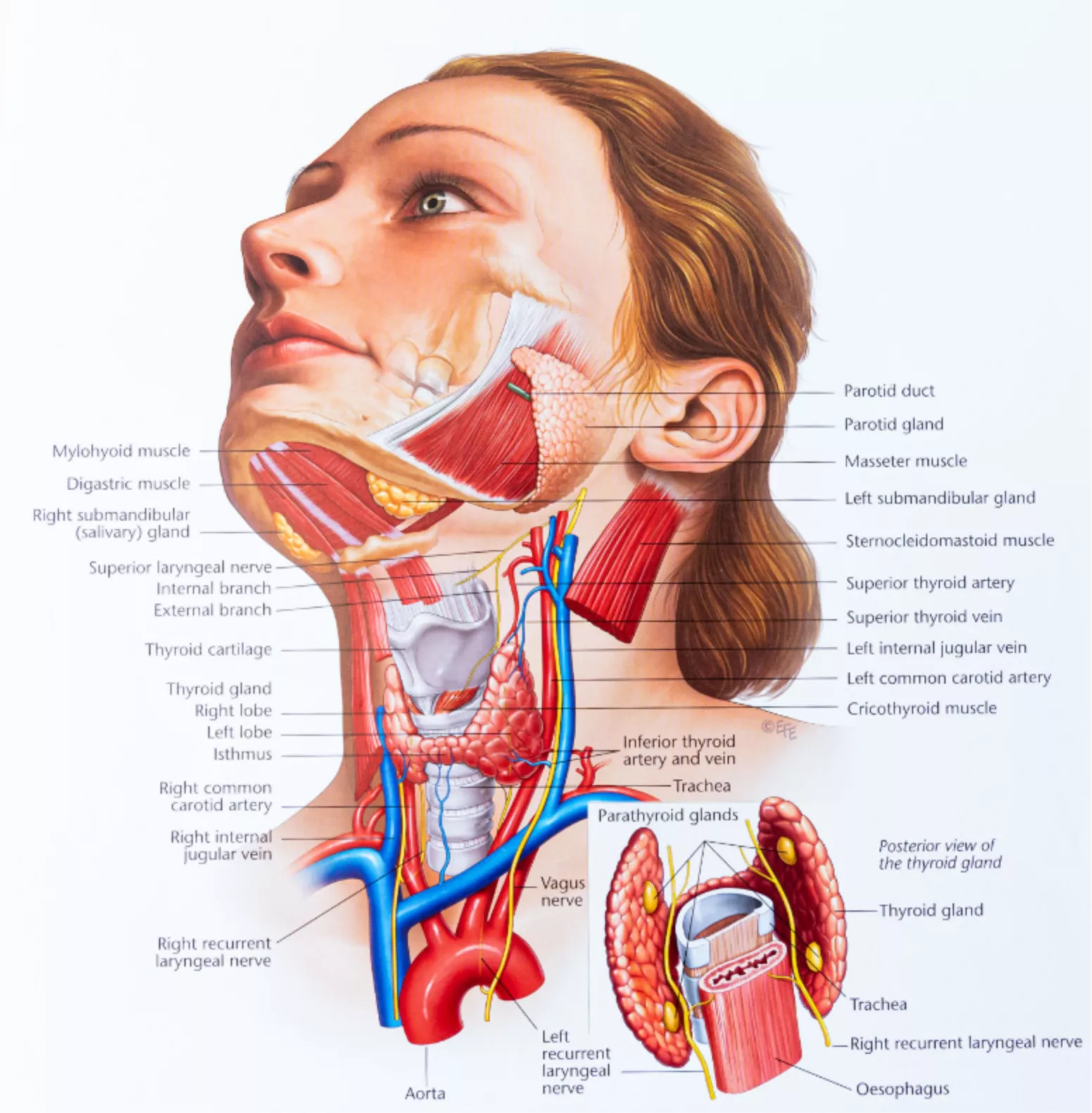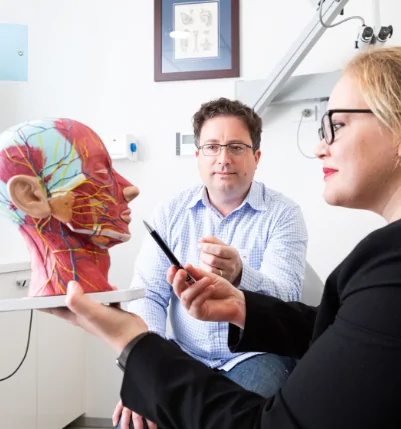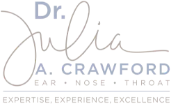
Thyroid Disorders
What is my thyroid, and what does it do?
Your thyroid is a butterfly-shaped gland found at the front of your neck, just below your Adam’s apple. The thyroid produces important hormones, thyroxine (T4) and tri-iodothyronine (T3), which help to regulate your body’s metabolism. Thyroid hormones contribute to optimal functioning of essential organs, like your heart and brain.
What could go wrong with my thyroid?
- Hypothyroidism
Occurs when your thyroid does not produce enough thyroid hormones. This could cause symptoms like fatigue, weight gain and poor concentration.
- Hyperthyroidism
Occurs when your thyroid produces excess thyroid hormones. Symptoms of an overactive thyroid include irritability, anxiety, palpitations, insomnia and weight loss.
- Thyroid nodule
Is a lump that develops within the thyroid. Most thyroid nodules develop from an overgrowth of normal thyroid tissue, and are not dangerous. However, around 5% percent of thyroid nodules are cancerous. A thyroid ultrasound is used to investigate a thyroid nodule. A biopsy may also be required.
- Thyroid cancer
Can occur at any age, and affects women more than men. Symptoms of thyroid cancer can include a thyroid lump, swollen neck lymph nodes, a hoarse voice, and swallowing or breathing difficulties. In Australia, the five year survival rate of thyroid cancer is around 97%.
What is a thyroid nodule biopsy?
A biopsy is a small tissue sample that is sent to the laboratory for testing. A biopsy of a thyroid nodule may be required to rule out thyroid cancer. A fine needle aspiration biopsy (FNAB) is a minor procedure, in which a very thin needle is used to obtain cells from a thyroid nodule. A FNAB is usually done under ultrasound guidance and will be performed at an imaging clinic.
What is a thyroidectomy?
A thyroidectomy is a surgical procedure to remove your thyroid gland. Depending on the reason for your surgery, either all or half of your thyroid is removed. If the entire thyroid is removed, you will need to take daily thyroid hormone replacement medication following the surgery.
A thyroidectomy is done under general anaesthesia. A low horizontal incision is made in the neck, before removing half or all of the thyroid gland. During thyroid cancer surgery, some neck lymph nodes may also be removed.


When is a thyroidectomy needed?
A thyroidectomy may be required for:
- Thyroid cancer
In most cases, thyroid cancer requires a thyroidectomy.
- Enlargement of the thyroid (goitre)
Surgery may be required for an enlarged thyroid gland, if it causes symptoms.
- Overactive thyroid
Surgery may occasionally be used to treat an overactive thyroid, particularly if a person has a goitre or problems with other anti-thyroid treatments.
- Suspicious thyroid nodule
In some cases, a thyroid biopsy may have indeterminate results. Surgery may be recommended if there are concerns that a nodule may be cancerous.
What are the risks of thyroid surgery?
Dr Julia Crawford takes the utmost care to avoid injury to surrounding neck structures during thyroid surgery.
However, any surgery carries some risk. Important complications to be aware of include:
- Low calcium levels
The parathyroids are tiny glands that are found near your thyroid gland. They are responsible for regulating your body’s calcium levels. After thyroid surgery, some patients may experience low blood calcium levels and require supplementation. This is usually temporary.
- Recurrent laryngeal nerve injury
Injury to this nerve leads to hoarseness of the voice. Dr Crawford is careful to protect this nerve during surgery. However, temporary hoarseness may occur after surgery due to tension on the nerve during removal of the thyroid.
- Bleeding
This is an unlikely complication of thyroid surgery.
Most patients experience a straightforward recovery following thyroid surgery, and do well on thyroid hormone replacement medication.
If your GP has advised that you see a surgeon for your thyroid concerns, Dr Julia Crawford would be happy to assist you. Please call our office on 02 8319 9434 to arrange a consultation (in either Darlinghurst or Kogarah).

